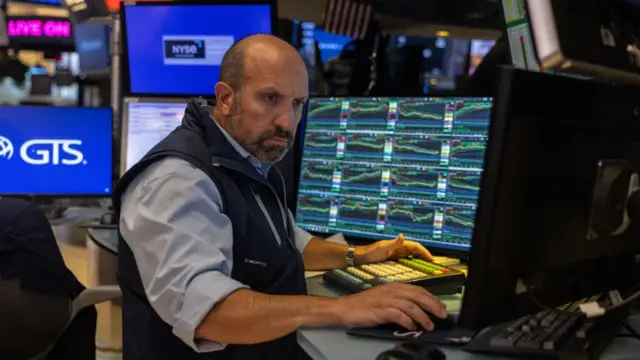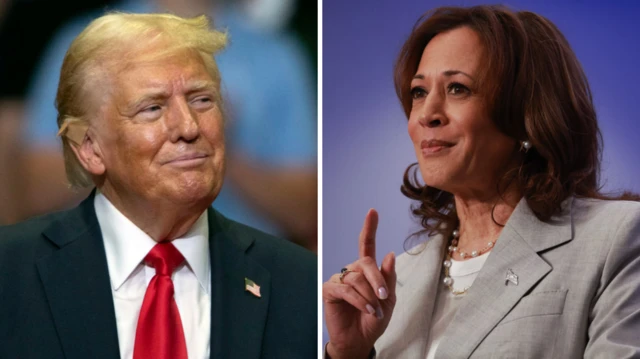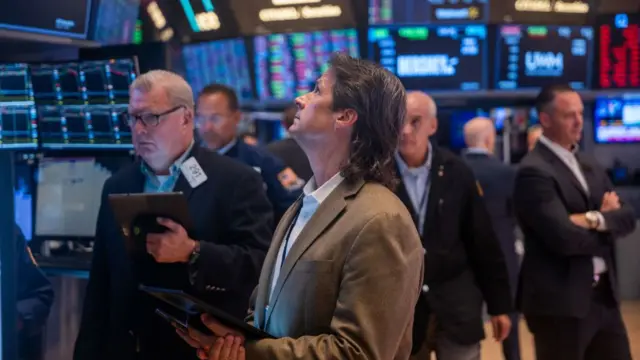What happened today?published at 18:07 BST 5 August 2024
We are wrapping up our live coverage of global markets. Here's a recap of where things stand after a bumpy couple of hours on Wall Street.
- After a report of weak jobs data was released on Friday, Wall Street opened with sharp declines, stoking fears of a sudden downturn in the world's largest economy
- Tech stocks, as expected, took a beating - with the Nasdaq technology-heavy index down by 3.1%
- Multiple experts declared this is not a US recession, but warned the economy is weakening
- Japan's market plummeted to its biggest fall by points in history
- In London, the FTSE 100 index fell by 2.8%
- Stock markets in Taiwan, South Korea, India, Australia, Hong Kong and Shanghai all tumbled
For a full wrap of what happened in global markets today, click here. And for analysis on if the US is really heading for recession, click here.
Thanks for joining us.








